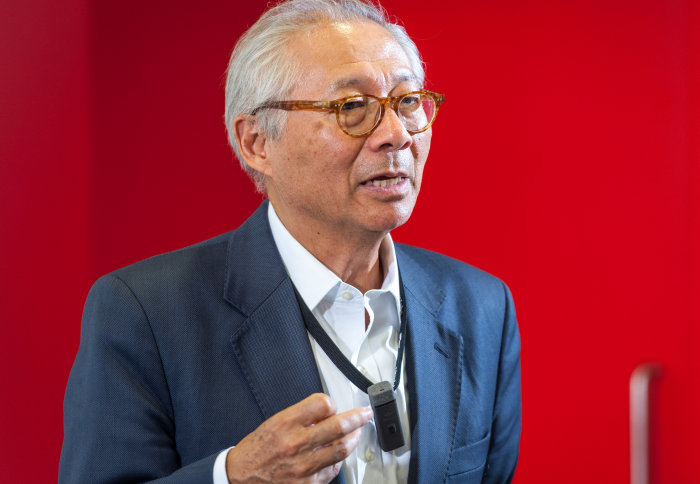Western tech firms risk falling behind Chinese competitors

Western companies need to get faster at implementing innovation if they are to keep up with their Chinese rivals.
This was the view of Emeritus Professor George Yip, who delivered a talk at the Business School to staff, students and alumni.
Summarising his latest book, Pioneers, Hidden Champions, Changemakers, and Underdogs – Lessons from China’s Innovators, Professor Yip said: “China is faster than any other country in the world at adopting innovation, and this is perhaps their biggest advantage. To survive, Western companies will need to become much faster at implementing innovation.”
Professor Yip said that China’s flat, flexible organisational structure and cultural acceptance of failure had given its companies a fast-moving advantage over the Western world. “The West is very good at going from zero to one and China is very good at going from one to 100. It’s the implementation advantage.”
The rapid path to innovation
Professor Yip’s book draws on themes from his earlier book on innovation in China which focusses on how China is innovating rather than imitating. The country has moved away from copying Western product ideas to creating new products that meet the demands of a wealthier population.
In his opening address, Professor Francisco Veloso, Dean of Imperial College Business School, highlighted the relevance of Professor Yip’s work. Professor Veloso said: “Innovation and China are two elements that are really crucial to the present and future of the economy in general and of the School in particular. Being the Business School of Imperial College London, innovation and entrepreneurship is at the heart of our School and how it goes about communicating and engaging with all its stakeholders.”
Professor Yip discussed how a number of factors had set China on a rapid path towards innovation, including high demand among Chinese consumers and regulation that is supportive of technology and innovation. He said there is also abundant private capital and a large and growing talent pool, many of whom were educated abroad.
“What made Apple the most valuable technology company in the world? Design. When Chinese companies start leading in design elements, watch out.” Emeritus Professor George Yip
He gave many examples of how home-grown Chinese firms are pioneering innovation. These innovations are divided into several categories. Firstly, there are the “early pioneers” including Baidu, Alibaba and Tencent, among China’s most valuable technology companies.
He then spoke about the “hidden champions” - around 200 Chinese companies who are adopting rapid innovation. Unlike early pioneers where the CEOs and founders have a “personality cult”, Professor Yip said that CEOs of “hidden champions” have a low profile and hide their strategic intentions.
Another group of Chinese innovators he referred to are “underdogs” – a group of around 150,000 elite entrepreneurs with early international exposure who fly under the radar with cutting edge technology and a niche focus. Professor Yip cited the example of Royale, founded by a Stanford PhD student, which produces a flexible display. “They launched the world’s first folding mobile phone — he beat Samsung and Huawei to this,” he said.
The final group he discussed were the “change-makers” — the next generation of entrepreneurs who are focused on digital disruption and are fueled by venture capital. “They are focused on speed, given the digital market. It’s a winner takes all market,” said Professor Yip. An example is Didi Chuxing, the Chinese taxi-booking app that “defeated Uber in China. Uber sold out to them”.
However, according to Professor Yip, there are remaining challenges for Chinese technology companies, not least the “Great Firewall” that restricts internet access in the country.
Looking toward the future, Professor Yip said that mastering design and branding would be China’s “last frontier”. He said: “What made Apple the most valuable technology company in the world? Design. When Chinese companies start leading in design elements, watch out.”
Article text (excluding photos or graphics) © Imperial College London.
Photos and graphics subject to third party copyright used with permission or © Imperial College London.
Reporter
Laura Singleton
Communications Division